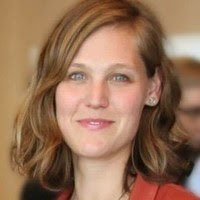
The human experience is a complex and often disorienting ride. Collectively, we encounter common questions over and over again through the chapters of our lives and the long arc of human history. We ask: “What’s it all for? What is my purpose in this life? How can we be good to one another?”
These questions are timeless and ever-present, and also ever evolving in the social context of a given time and place.
As modern, “Western” humans existing in a divided city, in a divided country, at the tail end of a pandemic that has separated us and unified us in ways we could never have imagined, how are we encountering those questions now? How are we finding our way forward in the context of layered crises and critical questions about our past and our future as a species on this planet?
Historically, religion and spirituality have shown up to guide us through hard times. They offer time-tested theories and frameworks that calm our anxieties, root our crises in a larger set of values, or draw out our rights and wrongs to be judged by people and forces considered to be greater than ourselves. Religious institutions aggregate stories and lessons across the ages to guide vulnerable humans through the inevitable trials of the world. They build hierarchies and structures to lean on. They offer respite from the intense demands pressing on individuals by connecting our experiences to the collective. They enable us to place our trust in “experts” who have gone down the path of spiritual exploration before us.
Religious structures can serve as a balm to our insecurities and provide a sense of stability. At the same time, they are constructed by humans—subject to the same imperfections as those who come to our churches and mosques and synagogues seeking “the truth.” As with any institution, they reflect the flaws of humanity and the inevitable distortions of humans with concentrated power. They hold the potential to distort reality, advance agendas, and commit abuses. Religious leaders can choose to wield the stories, lessons, and structures of an institution for the sake of amassing and maintaining their own power. We have seen these patterns and practices unfold since the dawn of religious institutions themselves.
More subtly, religious institutions can obscure our natural relationship to our own inherent wisdom. They allow us to shortcut our own hard work of discovery and evolution. They feed us pre-determined “truths” and placate our concerns by giving us an easier path. We can feel virtuous simply by showing up and doing what we’re told.
In modern times, religious institutions have begun to lose their grip. Centuries of accumulating and abusing power have led to lost trust and lost ground. Society has asked hard questions and received unsatisfying answers. Many have discarded religion wholesale on the grounds of disillusionment. What often gets lost in the process is spirituality and spiritual practice. We throw the baby out with the bathwater. People are left to move through the motions of life on their own, with little guidance or pursuit of inner peace. Instead, we chase dollars, credit, justice, beauty, and joy at a surface level for our own individual gain. We go to bed at night feeling like we’ll never get there. We feel alone in this world. That we are not enough. Not doing enough, not earning enough, not being enough.
The past 18 months has brought many realities into stark relief. We have seen shocking examples of institutional religion being corrupted for political or financial gain. And we have seen how this leads us into misery and separation. Huge swaths of society have doubled down on religious identities that permit them to feel superior to others, while others have released their grasp entirely on a spiritual existence—waging a purely intellectual path forward into what “should” be. We go to church or we go to Twitter, and both tear us apart.
There is very little space in the rhythms of our modern human existence to get in touch with the simple truth of what “is.” Opportunities to connect with a community of spiritual practitioners unmitigated by the hierarchical relationship of an institution are rare and largely absent from a mainstream American experience.
I’ve heard many great thinkers this year call for a new “social contract.” I agree, and I also feel we must be grounded in our own sense of a spiritual truth to guide us into a brighter future.
To restructure society towards greater care, joy, and justice, we need to locate these forces in ourselves. We need to trust these forces in the core of our being. And we need pathways to access a spiritual truth that is not only rooted in our very own personal experience, but also in the complex and varied experiences of the collective.
What do we have in common? What rituals can we create together to connect to each other and ourselves? What practices will bring us home to a grounded and caring reality that enables us to do better as a society? What do we need to let go of?
These are our spiritual questions of now. We need to come home to places of connection, quiet, identity, tradition, and humility. We need to wean ourselves off the junk food of fast, now, me, win, take. These habits are killing us and destroying our promise of collective growth. We have ancient spiritual practices and wisdom all around us and deep within us. Now is the time to find places where we can invite it back into our lives.
Economic justice must be rooted in questions that are larger than ourselves. What spiritual truths are emerging in you and your community? What practices enforce their existence? What social contract will enable us as a society to take care of one another and ourselves?
 Michelle Geiss is Executive Director and Co-Founder at Impact Hub Baltimore, and a member of the 2021 ICJS Justice Leaders Fellowship.
Michelle Geiss is Executive Director and Co-Founder at Impact Hub Baltimore, and a member of the 2021 ICJS Justice Leaders Fellowship.
Baltimore is part of a national conversation around questions of justice, race, and community. Members of the ICJS Justice Leaders Fellowship consider how Jewish, Christian, and Muslim teachings and practice can contribute to the public conversation about (in)justice. Opinions expressed in this blog are solely the author’s. ICJS welcomes a diversity of opinions and perspectives. We do not seek a single definition of justice between or within traditions.